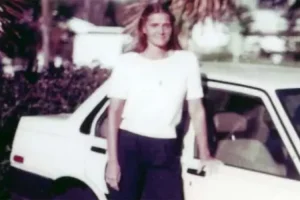Student-led focus group addresses campus sustainability
April 18, 2016
UW-La Crosse graduate student Colton Anderson conducted a focus group in the Cartwright Center on April 14 in order to better understand health education and promotion, as well as student engagement in environmentally sustainable activities and behaviors. Anderson, along with his advisor, Dr. Duquette, asked volunteers from health education majors about their experiences with sustainability on campus. When asked what comes to mind when the students heard the term “sustainability,” responses included everything from saving the animals and going green, to politics and urban planning.
The students were also asked which members of the UW-L campus were most likely to engage in sustainable efforts. The list included UW-L’s Students for Sustainability, Outdoor Connection employees and Peer Health Educators. However, the participants also shared their personal efforts to better the environment. Many of them mentioned utilizing reusable water bottles and grocery totes, biking or walking to class, recycling and carpooling whenever they could. Students also recommended decreasing dependency on certain technologies in order to conserve energy.
The idea for the focus group came from Anderson’s thesis for his graduate research which uses the Theory of Planned Behavior to better understand college student’s environmental efforts. “Educating myself has made me more sustainable,” said Anderson, which in turn has inspired him to educate and support his peers as well. From his focus group, the students outlined the advantages and disadvantages of environmental consciousness. Some of the disadvantages included the convenience of packaged goods and, at times, limited access to recycling and organic food. However, the advantages involved how reusing products can save money, that these efforts help future generations, and that these activities can easily become contagious habits.
In order to simplify sustainability on the UW-L campus, the focus group volunteers provided a few factors that would help. First, the volunteers all agreed there are some limitations stopping people from personal sustainability efforts. They also realize there may be restrictions on our campus’s efforts, like funding and time. Environmental education, media campaigns and student programs made the list for better general awareness. Apart from promotions, the students recommended creating campus gardens, more recycling stations, a plastic water bottle ban, and a stronger focus on alternative energies in order to strengthen UW-L’s commitment to sustainability.
“When we are not sure what to do, we look to see what others are doing,” said Anderson. In response to this, participants share those who inspire their sustainability efforts. Names like Bill Nye, Bernie Sanders and Erin Brockovich resounded from across the room. After more consideration, those mentioned became more local. Local farmers, the Sierra Club and the Mississippi Valley Conservancy became members of the same list. As the volunteers added names, the more personal they became. Eventually, the students began to name friends and family members, and commended UW-L and the general La Crosse community for commitments to preserving the area. The students agree that the future of the campus, the community and the world all depend on the actions of individual students and citizens like themselves.





